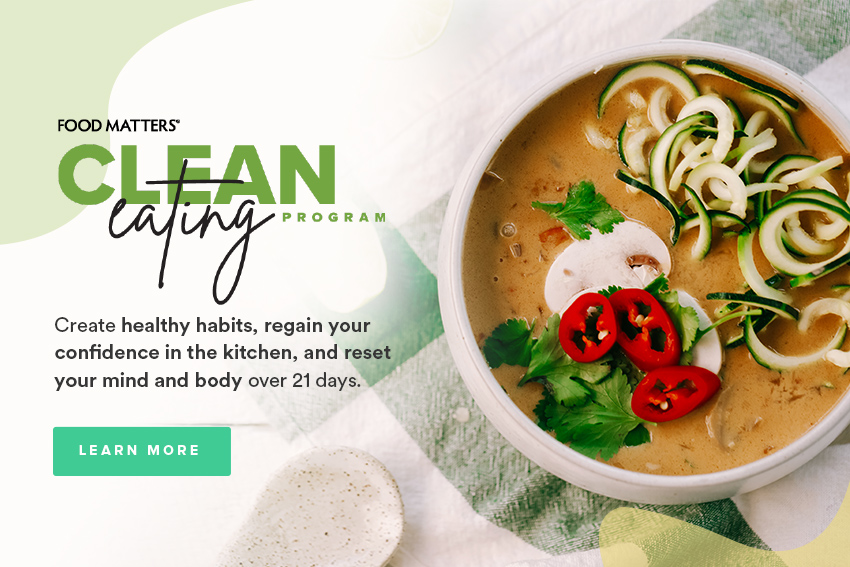9 Calming Foods to Reduce Anxiety & Stress These Holidays
As the holidays quickly creep up, an overwhelming sense of urgency may begin to dawn on you. The end of the school year, finishing final projects for work, holidays and dinners to plan, as well as an ever-growing social calendar... What's meant to be once of the most relaxing and enjoyable times of the year can quickly become the most anxiety inducing!
I know that no matter how this next month shapes up, we all need to take steps to look after our minds, bodies, and souls - and each other. These last two years have been increasingly stressful - and something like planning a Christmas dinner, which seems simple at first, may be final straw that sends you into panic mode. Know that you’re not alone and it's okay to feel this way.
At Food Matters, we firmly believe you can take back your mental and physical health with good food and lifestyle habits. So if you’re feeling stressed, anxious, or overwhelmed you may reach for certain foods to make you feel better. This is not a problem, so long as the foods that you’re eating are actually helping you manage your stress and not making the situation worse.
In this article, you're going to discover 9 foods proven to help boost your feel-good hormones, lower your blood pressure, and reduce cortisol levels, which will help you balance your moods and feel calmer.
1. Capsicum
Why it works: When we’re stressed, our body releases a chemical called cortisol. Capsicum reduces the amount of cortisol in the bloodstream which helps to manage stress, plus it contains vitamin C that boosts immunity.
How to eat it: Chop up some raw sticks to have at your desk at work and munch on them on their own or with a nice hummus when you’re feeling stressed. The crunchiness will also help to relieve your tense jaw.
2. Cooked Tomato
Why it works: Like capsicum, this too helps to reduce your cortisol levels but is also a major source of lycopene; which has been linked to a reduction of depressive symptoms, and helps prevent inflammation and blood clots. Studies have found cooking tomatoes can increase the potency of lycopene, far great than any other fruit or vegetable.
How to eat it: Try adding cooked tomatoes to your breakfast routine or make some delicious tomato soup for lunch or dinner.
3. Spinach
Why it works: Spinach, and other dark leafy greens are rich in folate which helps your body produce serotonin and dopamine, regulating your mood. Spinach is also high in magnesium which helps to lower high blood pressure. The body becomes depleted of magnesium when under stress, so getting plenty of magnesium through spinach is a great way to bring your body back to balance.
How to eat it: Add a cup of spinach leaves to your morning smoothie or create a healthy bed of baby spinach leaves to eat with a couple of poached eggs for breakfast.
4. Avocado
Why it works: Avocados contain 20 essential health-boosting nutrients, including potassium, vitamin E, B vitamins, and folate. According to research published in the Nutrition Journal, avocados keep you satiated throughout the day and are helpful for regulating blood sugar levels, which helps to keep your mood steady even in times of stress.
How to eat it: Avocado is so versatile you can add it to almost anything or eat it on its own for a pick-me-up snack. Add avocado to your morning smoothies, chop it up and put it in your salad, whip it up in your blender to make a guacamole dip or even use it in a dessert to curb those sweet cravings!
5. Salmon
Why it works: Salmon is an excellent source of healthy Omega 3 fatty acids which help regulate your hormones and brighten your mood. Salmon also contains zinc, which is often depleted in the body in times of stress.
How to eat it: Breakfast, lunch or dinner! This delicious protein is great with eggs for breakfast, pan-fried in coconut oil and partnered with a side salad for lunch, or why not try it with a coconut and macadamia crust for an easy but impressive dinner. For a quick and easy bite to eat when you’re busy, have a salmon nori roll to get the added benefit of the seaweed’s vitamins and minerals.
6. Dark Chocolate
Why it works: With magnesium deficiency linked to anxiety and stress, you don’t have to feel guilty about a few bites of chocolate when you’re stressed. Good quality dark chocolate contains magnesium and zinc to give you a healthy boost.
How to eat it: Have a few pieces of high-quality dark chocolate as a snack when you’re stressed.
7. Walnuts
Why it works: Walnuts contain a plant form of Omega- 3 fatty acid that the body converts into docosahexaenoic acid (DHA) to lower norepinephrine, a hormone which can make you feel anxious and irritable.
How to eat it: Add a sprinkling of walnuts to your salad at lunch.
8. L-Tryptophan
Why it works: L-tryptophan is an amino acid that your body converts to the ‘happy chemical’ serotonin. Do you get cranky when you’re stressed? Research has shown that people who consume trytophan become significantly more agreeable and less quarrelsome.
How to eat it: Foods rich in L-tryptophan include oats, yogurt, nuts, seeds or organic pasture fed animal products.
9. Sesame Seeds
Why it works: Stress and anxiety tend to deplete your body of zinc, and our bodies need zinc for both the immune and nervous systems. Sesame seeds hold around 10 mg of zinc per 100 g serving, whether you eat them raw, toasted or ground.
How to eat it: Sesame seeds ground into butter, known as tahini, is delicious with salads or as a dip with a few veggie sticks for a quick and easy snack. Tahini is also a core ingredient for hummus!
If you know you’re a ‘comfort eater’ when you’re stressed, stock up on these healthy, calming foods to help you balance your emotions and keep your calm.
Take the stress out of cooking with 21-days of guided meal plans, shopping lists, and nutrition support. You’ll find all of this, and more, in our signature Clean Eating Program.










